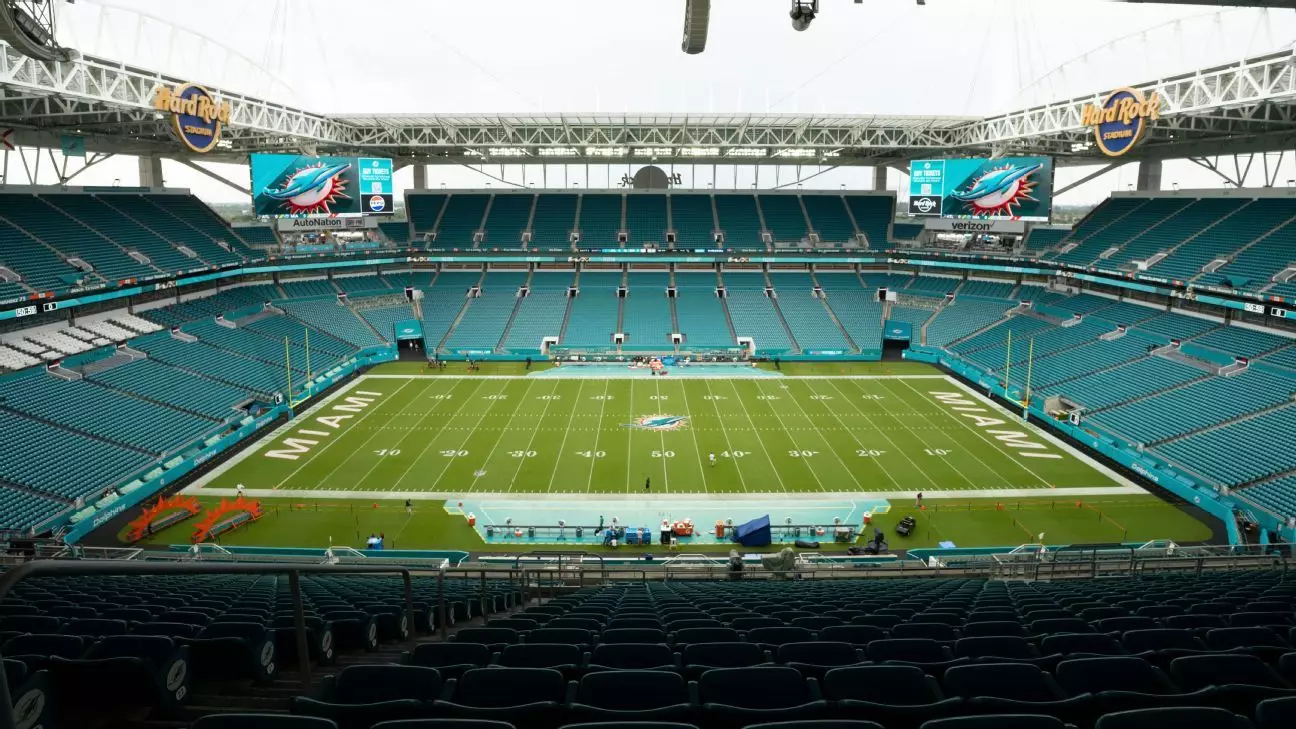LaLiga, the top professional football division in Spain, is aiming to expand its global presence by hosting a competitive league match in Miami next season. This ambitious proposal, spearheaded by LaLiga president Javier Tebas, is not merely an initiative to increase the league’s viewer base; it is also a complex endeavor fraught with regulatory and logistical challenges. The intentions behind this move resonate with the league’s broader strategy of tapping into international markets, particularly in the United States, which is considered a growing hub for soccer enthusiasts.
The initiative for hosting LaLiga matches in the U.S. is far from new. Tebas initially sought to stage such an event back in 2018, intending to feature a match between Barcelona and Girona at the Hard Rock Stadium in Miami. However, this proposal was met with substantial resistance from both the Spanish Football Federation (RFEF) and FIFA at the time, who viewed the move as contradictory to the principles governing competitive football. This earlier setback reflects a broader tension between local football governance and the ambitions of leagues seeking to globalize their reach.
Opposition wasn’t merely confined to governing bodies. The resistance reflected concerns about diluting the essence of league competitions and the risk of prioritizing commercial interests over sporting integrity. This has led to a notable standoff, with the RFEF firmly rooted in its reluctance to entertain the thought of competitive matches being played outside Spain’s borders.
Recent developments, however, have reignited discussions around holding a LaLiga match in Miami. The Relevent Sports Group, affiliated with prominent figures like Stephen Ross, has been at the forefront of efforts to facilitate this initiative. In a significant legal maneuver, Relevent sued FIFA after its interventions hampered plans for the Miami match. The recent resolution of some legal entanglements has opened the door for potential collaboration, signaling that FIFA may no longer impose the same rigid constraints on matches held outside traditional territories.
This legal backdrop indicates a shifting landscape, where traditional barriers may be weakening in light of expansive marketing ambitions. Tebas noted the importance of establishing a collaborative agreement with the RFEF before any plans could materialize, emphasizing that the federation’s internal struggles, including leadership vacancies, have contributed to delays regarding international matches.
As discussions around a LaLiga game in Miami progress, they occur against a backdrop of rising tensions over player welfare. Recently, Rodri, a midfielder for Manchester City, indicated that players could potentially go on strike due to an increasingly congested match schedule. This proclamation underscores the mounting pressure on athletes who are already stretched thin by domestic and international commitments.
The announcement of an expanded 32-team Club World Cup in the United States next summer has exacerbated these tensions. David Aganzo, the president of the Spanish Players’ Union (AFE), has echoed the players’ frustrations, indicating a readiness to strike should their concerns remain unresolved. Such circumstances complicate the narrative of LaLiga’s expansionism, revealing the intricate balance leagues must strike between ambition and player well-being.
In light of these tensions, Javier Tebas has taken a nuanced position. While he has raised concerns about the implications of the expanded Club World Cup, he stands firm in his advocacy for a LaLiga game in the U.S. He argues that supporting a match abroad does not necessarily conflict with addressing the broader issues surrounding player welfare and fixture congestion. This dichotomy reveals a critical tension within sports governance, where the commercial aspirations of leagues can sometimes overshadow the needs and rights of the players themselves.
As LaLiga looks towards its potential Miami game, the road ahead is fraught with challenges and debates. This dynamic situation encapsulates a broader theme in global sports — the struggle between commercialization and tradition, and the stakeholders vying for influence in an ever-evolving landscape. Whether this vision will materialize next season remains uncertain, but one thing is clear: the conversations it sparks will undeniably shape the future of LaLiga and its connection to global fans beyond Spain’s borders.


Leave a Reply